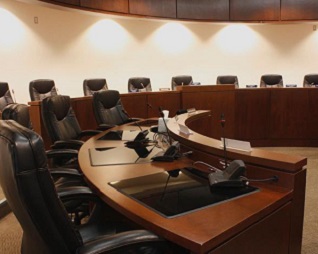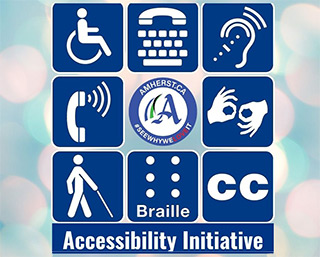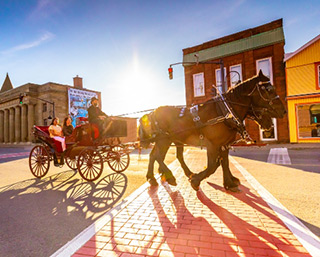Amherst town council gives first reading to new noise bylaw
A proposed new noise bylaw was given first reading by the Amherst town council during its June 21, 2021, meeting.
Officially called the Noise and Disturbances Bylaw, it is similar to noise bylaws currently in place in many other municipalities of similar size to Amherst. It defines the activities within town borders that unreasonably disturb the peace and tranquility of a neighbourhood as well as the exemptions to the bylaw.
“Council members have been approached by residents who told us that something needed to be done to curb isolated noise issues in town,” Mayor David Kogon said. “Council believes this bylaw is a positive step in addressing the issue.”
He said the bylaw gives the police department another tool to deal with noise and disturbances that complements sections of the Criminal Code and the Protection of Property Act.
“Police will use their discretion in determining what is unreasonable, taking into considering the setting, which may include the time of day and other circumstances,” Police Chief Dwayne Pike said. “Ideally, corroborating evidence will help determine how police should proceed.”
He noted the seriousness of the complaint may result in police proceeding via another avenue, which may include the Criminal Code or other provincial legislation.
Under the proposed bylaw, activities prohibited at all times include:
- The operation of any combustion engine or pneumatic device without an effective exhaust intake muffling device, which must be in good order and in constant operation.
- The operation of a vehicle or a vehicle with a trailer resulting in banging, clanking, squealing or other like sounds due to an improperly secured load, equipment or inadequate maintenance.
- The operation of a motor vehicle horn or other warning device, except where required or authorized by law or in accordance with good safety practices.
- The operation of any public address system, television set, radio, disc player, tape deck, phonograph or other electronic sound reproduction or amplification system if the resulting sound is audible beyond the boundaries of the property where it is created.
- The detonation or use of fireworks within town limits, except where an exemption has been granted by the Amherst town council.
- Fighting, screaming, shouting that causes any loud and unnecessary noise.
- The operation of a recreation vehicle within 30 metres of a residence, except for the reason of operation for the purpose of parking or storage on one’s own property.
- Persistent barking, calling, whining or the making of any similar persistent noise-making by an animal.
- The operation of an engine or motor in, or on, any motor vehicle or item attached to auxiliary equipment for a continuous period exceeding five minutes, while such vehicle is stationary in a residential area unless:
- Weather conditions justify the use of heating or refrigerating powered by the motor or engine for the safety of the operator, passenger or animals, or the preservation of perishable cargo, and where the vehicle is stationary for purposes of loading or unloading;
- Prevailing low temperatures make longer idling periods necessary immediately after starting the engine.
In addition, activities prohibited any day before 7 a.m. and after 10 p.m. include:
- The operation outdoors of any power tool for domestic purposes other than snow removal.
The bylaw establishes fixed exemptions including:
- Emergency response personnel engaged in the execution of their emergency duties.
- Persons acting at the request of emergency response personnel during an actual or apparent emergency condition.
- Persons involved in the repair of essential services such as electrical power, sewer systems, water distribution systems and telephone services.
- Construction activities between the hours of 7 a.m. and 10 p.m. for which all necessary permits have been obtained.
- Parades, processions or demonstrations for which a permit or permission has been granted by the town or the traffic authority.
- Any community or community group-sponsored festival, jubilee, event or activity for which a permit or permission has been granted by the town.
- Athletic, recreational or school activities in arenas, playing fields, courts, school grounds and the like between the hours of 7 a.m. and 12 p.m.
- The reasonable ringing of a bell or chimes of a church.
- Noise relating to industrial or commercial activities occurring or located in industrial or commercial zones.
Under the bylaw any person may apply to the Amherst town council for an exemption from the provisions of the bylaw with respect to the emissions of noise from an industrial, commercial or community activity for which that person may otherwise be prosecuted.
The council, by resolution, may refuse or grant the exemption and any granted exemption shall:
- Specify a time period of not greater than two years for which the exemption shall be in effect;
- Must be confirmed in writing by the chief administrative officer before becoming effective, and;
- Will include such terms and conditions as the council deems appropriate.
The bylaw states the council, in making a decision to grant an application, must consider the social or economic benefit of the proposed activity to the town, the volume, nature, duration and consistency of the noise emission from the proposed activity, the proximity and nature of abutting or adjacent land uses, the hours of operation and any other factor relevant to balancing the interests of the applicant in the proposed activity against the interest of those persons who might be disturbed by the proposed activity.
Under the bylaw, anyone who violates the provisions will be liable to a fine of not less than $200 and not more than $2,000 for each offence.
Before the bylaw can go into effect, a notice of intention to adopt the bylaw must be published and a public hearing must be held. The date of the public hearing will be scheduled in the near future.
Council must then give the bylaw a second reading before it is sent to the Department of Municipal Affairs and Housing. The bylaw goes into effect once that happens.








